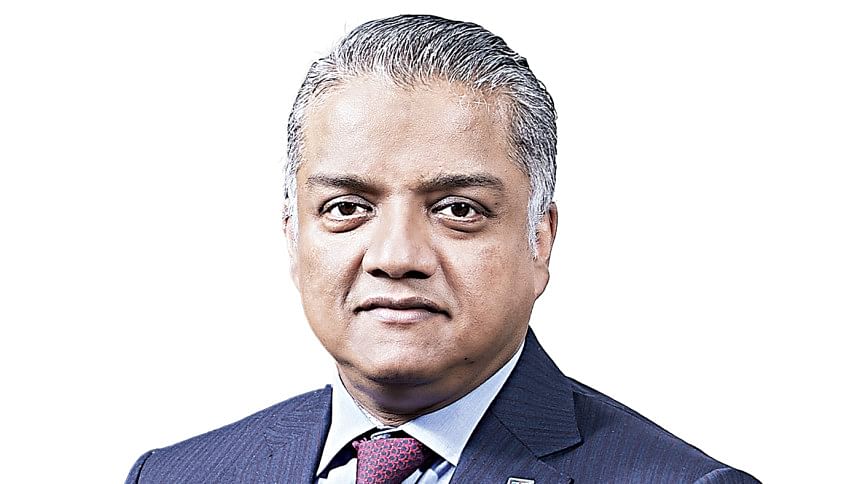Continuous investment in digital infrastructure is key to inclusion

ANM Mahfuz
Additional Managing Director &
Chief Business Officer, Bank Asia
The Daily Star (TDS): How Bangladesh progressing in its transaction to a cashless economy?
ANM Mahfuz (ANMM): Bangladesh is rapidly advancing towards a cashless society, with over 50% of financial transactions now occurring through digital channels. This shift is driven by the collaborative efforts of banks, non-bank financial institutions (NBFIs), mobile financial services (MFS) providers, payment service providers (PSPs), and payment system operators (PSOs), all working to make digital transactions more seamless and accessible.
A key factor in this transformation is our country's young, tech-savvy population. With a growing focus on digital solutions, Bangladesh is well-positioned to embrace a cashless future. Generation Z, in particular, is moving away from traditional financial systems, opting for the convenience of digital platforms. Government initiatives such as promoting mobile financial services, expanding the National Payment Switch, and supporting e-commerce have further accelerated this shift. Innovations like QR code payments, NFC-enabled cards (TakaPay) and two-factor authentication are making digital transactions more secure and accessible.
TDS: What innovative steps has your bank taken to accelerate the shift toward a cashless economy, and how have they impacted customers?
ANMM: At Bank Asia, we are leading the charge in promoting a cashless economy through several innovative initiatives focused on customer convenience and financial inclusion. One of our major steps has been creating a robust digital ecosystem, which includes an extensive ATM network, QR-based payment solutions, and advanced internet banking platforms accessible via web and mobile apps. These tools provide secure, seamless access to financial services, empowering customers to carry out transactions with ease.
Our commitment to financial inclusion in rural areas has been significant. Over 25,000 micro-merchants in rural Bangladesh are using our app for digital transactions, and we have established more than 5,000 agent points to ensure digital services reach even remote communities. By bridging the gap between urban and rural populations, we are enabling more people to participate in the formal financial system and supporting the country's transition to a cashless future.
TDS: What policy changes or government initiatives are crucial for making digital transactions more secure, inclusive, and widely adopted?
ANMM: To make digital transactions more secure, inclusive, and widely adopted, several policy changes are crucial. First, continued investment in digital infrastructure, particularly expanding high-speed internet access to rural areas, is essential for ensuring that underserved populations benefit from digital financial services.
Second, public financial literacy programs should be implemented to educate all segments of society on the benefits and safe usage of digital financial platforms. Lastly, the government could consider relaxing the mandatory tax return requirement for credit card applications, which could help encourage wider adoption and accelerate the transition toward a cashless society.
As Bangladesh expands its digital infrastructure, the path to a fully cashless economy is becoming clearer. Collaboration across the financial sector will play a vital role in achieving this vision, leading to greater financial inclusion and more efficient economic activities.

 For all latest news, follow The Daily Star's Google News channel.
For all latest news, follow The Daily Star's Google News channel. 



Comments